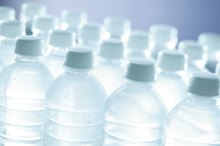What does fact checked mean?
At Healthfully, we strive to deliver objective content that is accurate and up-to-date. Our team periodically reviews articles in order to ensure content quality. The sources cited below consist of evidence from peer-reviewed journals, prominent medical organizations, academic associations, and government data.
The information contained on this site is for informational purposes only, and should not be used as a substitute for the advice of a professional health care provider. Please check with the appropriate physician regarding health questions and concerns. Although we strive to deliver accurate and up-to-date information, no guarantee to that effect is made.
Supplements for Dialysis Patients
Nutrition supplements come in a variety of forms. They are called supplements because their role is to add certain nutrients to your regular diet. Dialysis patients often benefit from supplements due to the nature of their treatment and particular nutrition needs. Physicians and registered dietitians often prescribe or recommend supplements that will benefit an individual patient.
Nutrition and Dialysis
Dialysis is the treatment used for individuals with end stage renal disease 12. Diet is a vital component to living well on dialysis 2. A dialysis patient will need to limit certain nutrients, such as water, sodium, phosphorus and potassium.
Liquid Supplements
Liquid Food Supplements for an Elderly Person
Learn More
Liquid supplements are common and fairly easy to obtain. A typical 8 oz. container of one of these regular drinks contains about 10 g of protein and 240 calories. The some versions of the beverages have about 350 calories and 13 to 14 g protein. High-protein versions have 12 to 15 g protein per 240 calories. Dialysis-friendly formulas are higher in overall protein and calories but lower in phosphorus and potassium.
- Liquid supplements are common and fairly easy to obtain.
- The some versions of the beverages have about 350 calories and 13 to 14 g protein.
Powder Supplements
Due to the dietary restrictions, it can be a challenge for dialysis patients to get enough protein while maintaining their phosphorus restriction. Protein powder supplements are a good protein supplement option for these individuals. Low phosphorus protein powders include 100 percent whey protein powder.
Vitamin and Mineral Supplements
Scandishake Nutrition Information
Learn More
Some vitamins and minerals can be lost during a dialysis treatment 1. These are usually water-soluble vitamins, such as vitamins C and B. Zinc, iron, calcium and vitamin D are also prescribed to some dialysis patients. Ask your physician before taking any over-the-counter supplements, because some may contain ingredients that can be harmful to your health. There are some companies that make dialysis-specific multivitamins.
- Some vitamins and minerals can be lost during a dialysis treatment 1.
- These are usually water-soluble vitamins, such as vitamins C and B. Zinc, iron, calcium and vitamin D are also prescribed to some dialysis patients.
Warning
Dialysis patients should discuss the use of any supplement with their kidney doctor or their dietitian 1. Each clinical case is different, and these statements are based on general population needs and are not prescriptions for an individual patient.
Related Articles
References
- National Kidney Foundation: Dietary Guidelines for Adults Starting on Hemodialysis
- Renalinfo.com: Diet for Kidney Disease
- Banshodani M, Kawanishi H, Moriishi M, Shintaku S, Tsuchiya S. Association between dialysis modality and cardiovascular diseases: A comparison between peritoneal dialysis and hemodialysis. Blood Purif. 2019;:1-8. doi:10.1159/000504040
- Ch'ng CC, Ong LM, Beh KKM, et al. Survival advantage of initiating dialysis in elderly and non-elderly incident end stage kidney disease patients. Nephrology (Carlton). 2020; Jan 4. doi:10.1111/nep.13689
- Hussain JA, Flemming K, Murtagh FE, Johnson MJ. Patient and health care professional decision-making to commence and withdraw from renal dialysis: a systematic review of qualitative research. Clin J Am Soc Nephrol. 2015;10(7):1201-15. doi:10.2215/CJN.11091114
- US Renal Data Systems. Bethesda MD: National Institutes of Health, National Institute of Diabetes and Digestive and Kidney Diseases; 2019. Chapter 5, Mortality. USRDS 2019 Annual Data Report.
Writer Bio
Amber Wilson is a registered dietitian and has worked in a variety of fields, including clinical nutrition and community health. She has been writing since 2003 and her projects have included articles for company newsletters, grant applications, policy and procedure manuals, and the production of educational materials.









